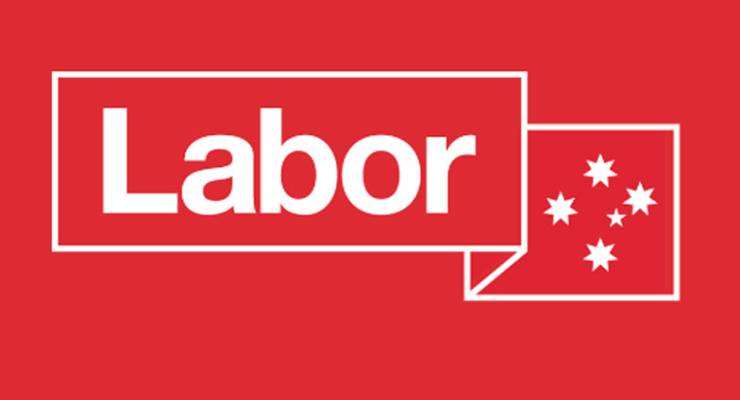
In an age of ever-declining faith in the political class, few corners of the democratic world have greater cause to feel dissatisfied with their elected representatives than the Central Coast region of New South Wales.
This time three years ago, the region was represented federally for Labor by Craig Thomson and for the Liberals at state level by Darren Webber, Chris Spence and Chris Hartcher. All three have since left politics in varying degrees of disgrace.
Another federal representative, Belinda Neal, was dumped by Labor for preselection in 2010 after episodes including a confrontation with staff at a local restaurant-nightclub turned her into a serious liability in a seat the party couldn’t afford to lose.
It’s on this difficult terrain that two of the most intense contests of the federal election campaign are being fought.
Respectively dominated by the regional centres of Wyong and Gosford, Dobell and Robertson were both among the eight New South Wales seats the Coalition gained from Labor in 2013, and they would form indispensable components of any winning combination for Labor on July 2.
Robertson has been held over successive terms by Belinda Neal, her one-term Labor successor Deborah O’Neill (who has since found a place in the Senate), and most recently by the Liberal victor in 2013, Lucy Wicks. Dobell was represented by Craig Thomson from 2007 to 2013, and has since been held for the Liberals by Karen McNamara.
Wicks and McNamara were imposed as candidates by the Liberal state executive ahead of the 2013 election in the interests of factional and gender balance, combined with concern over the vitality of local branches that had conspicuously failed to deliver in 2010, when O’Neill saved Julia Gillard’s bacon by defending the minuscule margin bequeathed to her by Neal.
It remains to be seen to what extent Wicks and McNamara have since been able to ingratiate themselves locally, but they have at least managed to defy recent regional tradition by largely staying out of trouble.
However, local circumstances are such that that might not be enough.
The area they represent has long been noted as a haven for retirees, but it has increasingly taken on an urban fringe commuter suburban character through a development boom going back to the 1960s, before which it had been predominantly conservative.
This new constituency proved receptive to the Liberals in the Howard years, with Robertson turning blue for the first time since 1969 and Dobell being won over in 2001 after staying with Labor in 1996 and 1998.
But now the Liberals must contend with a regional economic downturn that has been particularly evident in a rate of youth unemployment that has ascended from 10.4% in 2013 to 16.0% on the Australian Bureau of Statistics’ labour force survey figures for March.
Related concerns about illicit drug use in the community reached such proportions that the region played host to an “ice summit” last year, at which Karen McNamara related the unlikely tale of “a young boy taken into an emergency department for treatment who gouged out his own eyeballs and ate them”.
At the state level, hyperbole of that order could well be thought the mark of an issue that would play out in favour of a Coalition law-and-order campaign. But at a federal election, voters could well feel more inclined to associate rising crime with underlying the economic problems that have at the very least worsened on the Coalition’s three-year watch.
McNamara particularly has her work cut out, in part because the redistribution has given her unfriendly new territory around Toukley and Lake Haven from the safe Labor seat of Shortland to the north.
She also faces a particularly strong opponent in Emma McBride, former head of pharmacy at Wyong Hospital and daughter of long-serving state member Grant McBride, who has long been earmarked as a future Labor representative.
McBride took on the lost cause of attempting to keep Dobell in the Labor fold following the Craig Thomson debacle in 2013, apparently after arm-twisting from a party organisation that considered her uniquely placed to put up a respectable show.
Robertson is the tougher of the two nuts for Labor, being held by Wicks on a post-redistribution margin of 3.3% — almost exactly equal to the Coalition’s two-party winning margin nationally in 2013, and precisely the size of the swing that polling trends point to at both national and state level.
Labor’s candidate is Anne Charlton, a former chief-of-staff to Deborah O’Neill who gained media attention for her admission that she was addicted to heroin at the age of 16.
Both party leaders sought to boost their respective candidates’ causes with visits to the area late last week, with Malcolm Turnbull burning through over $50 million in environmental and medical school commitments during a visit to Wyong on Saturday, and Bill Shorten emphasising McBride’s medical credentials by promoting his party’s Medicare policy alongside her two days previously.
With five and half weeks yet to go in the election campaign marathon, it’s a very safe bet that neither electorate has seen the last of them.








Crikey is committed to hosting lively discussions. Help us keep the conversation useful, interesting and welcoming. We aim to publish comments quickly in the interest of promoting robust conversation, but we’re a small team and we deploy filters to protect against legal risk. Occasionally your comment may be held up while we review, but we’re working as fast as we can to keep the conversation rolling.
The Crikey comment section is members-only content. Please subscribe to leave a comment.
The Crikey comment section is members-only content. Please login to leave a comment.